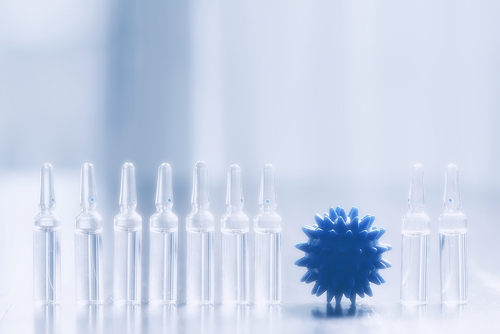
In exchange for rapidly testing drugs for potential repurposing as COVID-19 treatments, University of Maryland School of Medicine (UMSOM) researchers will receive up to $3.6 million from the Defense Advanced Research Projects Agency (DARPA) over the next year.
All of the drugs to be tested are already U.S. Food and Drug Administration (FDA) approved for other uses. The compounds will be tested in the lab of coronavirus researcher Dr. Matthew Friemen, Associate Professor of Microbiology and Immunology at UMSOM, though he will be joined in this by three other professors.
“The new technologies we now have in place in our laboratory will allow us to test more drugs at a much faster rate to determine whether they have the potential to stop the novel coronavirus from replicating in cells and causing Covid-19,” Frieman said.
Together with his colleagues, Frieman released the results of studying 20 FDA-approved drugs last month, revealing that 17 showed the potential to block the virus that causes COVID-19, SARS-CoV-2. These drugs already demonstrated antiviral effects against SARS-CoV-1 and MERS-CoV. With the addition of micro Organ Chip technologies at the lab, however, the researchers can now rapidly test drugs by the dozen.
“Through our cell and lung-on-a-chip-based antiviral testing system, we will be able to better predict candidate therapeutics for priority testing in animal models and eventually human trials,” Frieman said.
Any drugs that appear to most strongly reverse the inflammatory reactions of SARS-CoV-2 in human lung chips will be tested in animal studies. Gene expression changes and certain proteins and chemicals involved in the immune response will be analyzed. All results will be shared with the Wyss Institute for Biologically Inspired Engineering at Harvard University, and the team plans to connect with government entities like the FDA to speed any discoveries into actual treatments.
The funding granted to UMSOM is part of a larger award of $16 million being awarded to the Wyss Institute, which developed computational drug discovery pipelines and the human Organ Chip technologies that will enable UMSOM’s research.




